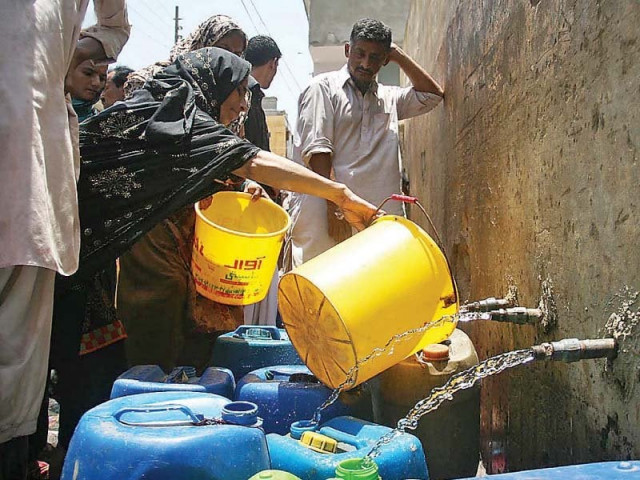Experts warn of water crisis as population hits 220m
Lack of new water reservoirs, changing climate exacerbate the predicament

With the country’s population crossing over 220 million figures, mounting pressure on water resources dropped Pakistan’s per capita water availability to 908 cubic meters ringing alarm bells for policymakers, also posing serious challenges to food security.
Non-construction of new mega water reservoirs after Tarbela and Mangla, changing weather patterns as well as natural hazards seriously impacted our economy, agricultural produce, livelihood, lifestyle and social fabric.
As per the data of the Population Census Organisation Pakistan's per capita water availability of 5,260 cubic meters in 1951 had dropped down to 2129 cubic meters in 1981, 1611 cubic meters in 1991 and then 908 cubic meters in 2016.
Besides, the non-availability of required water reservoirs, the population that rose to 220 million in 2022 from 34 million in 1951, could be another mattering factor in the drop of per capita water availability with years from 1991 to 2016 witnessing massive population growth from 111 million to 197 million respectively.
Lack of water reservoirs also resulted in severe floods and droughts inflicting losses of billions of dollars on poor people as experts urged to devise a concrete plan to roll out a water pricing regime to address the water scarcity issue.
“Every year we waste around 29 million acre-feet (MAF) water due to the absence of storage facilities as no mega project was built after the commissioning of Tarbela and Mangla dams in the 1970s,” stated former WAPDA chairman Shamsul Mulk. He cautioned that unchecked population growth and lack of water conservation and storage facilities would be bringing about much harder days ahead. Former chairman Pakistan Council of Research in Water Resources, (PCRWR) and water expert Dr Muhammad Aslam Tahir also regretted the non-construction of mega dams.
“We need timely steps to ensure water management in agriculture, domestic and industrial sectors through an awareness campaign, adoption of technology and imposing restrictions,” suggested Dr Muhammad Ashraf, former Chairman of PCRWR. He advocated controlling our population and water wastage by using the latest technologies.
According to Pakistan Water Gateway, a non-governmental water research portal, groundwater levels in the country were also dropping by a meter per annum.



















COMMENTS
Comments are moderated and generally will be posted if they are on-topic and not abusive.
For more information, please see our Comments FAQ